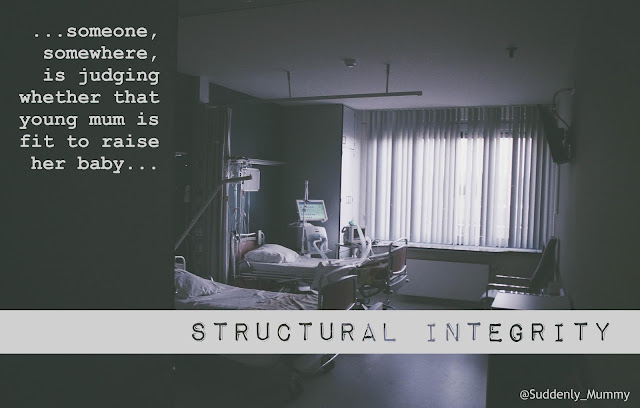Celebrities Weigh in for National Adoption Week
National Adoption Week is upon us and unsurprisingly a crop of celebrities have been called upon by various news programmes to give their opinions. But how useful are their views?
Undoubtedly, using celebrities can help to raise the profile of the issue, and I'm all in favour of that, but are their anecdotal tales really any substitute for informed opinions from experts who work in the field?
Amongst others, the BBC news programmes have called upon Saira Khan and author Jeanette Winterson as part of their coverage of the story.
Saira Khan's adoption of a baby, Amara, from Pakistan has been well-publicised and was the subject of a two-part doumentary. She undoubtedly has been through a profound personal journey, but her views as expressed on the BBC news programme that I saw were somewhat naive.
Calling for a speeding up of the adoption process, she spoke of the trauma that children who are awaiting adoption go through, but then downplayed the long-term effects of this trauma, suggesting that over-stating the problems of these children puts parents off adopting. The message was clear: all these children need is a loving family and if they have that then the problems will melt away.
If this is true, then why the increasing number of failed adoptions? Why the desperate calls from adoptive families for more post-adoption support to help them deal with the difficulties they encounter? Unfortunately, love does not conquer all.
Jeanette Winterson was herself adopted as a child and, despite her own difficult upbringing, she has spoken passionately to encourage more people to step forward as adopters. Yet on TV this week she said that she was shocked at how few children are being adopted nowadays. According to Jeanette Winterson 'only, like, 60 kids' were adopted last year, a statistic which she found 'unbelievable'.
Well, yes, it unbelievable, and it is also completely untrue. The much-mentioned figure of 60 children adopted relates only to the number of babies under one who were adopted and doesn't include the hundreds of older children who were adopted.
An easy mistake to make - anyone could have slipped up like that, you might think. But there was no expert to correct her, and the interviewer did nothing to correct the misinformation.
So, BBC, have your celebrities if you like, and let them do the important work of raising the profile of this vital issue, but at the same time, you also need to include the expert views of those who actually work in the field - from social services, from Action for Children, from AdoptionUK and the many other agencies who really do know what is happening. Otherwise the debate and public opinion will be skewed by naivety, inaccuracy and misinformation.
Undoubtedly, using celebrities can help to raise the profile of the issue, and I'm all in favour of that, but are their anecdotal tales really any substitute for informed opinions from experts who work in the field?
Amongst others, the BBC news programmes have called upon Saira Khan and author Jeanette Winterson as part of their coverage of the story.
Saira Khan's adoption of a baby, Amara, from Pakistan has been well-publicised and was the subject of a two-part doumentary. She undoubtedly has been through a profound personal journey, but her views as expressed on the BBC news programme that I saw were somewhat naive.
Calling for a speeding up of the adoption process, she spoke of the trauma that children who are awaiting adoption go through, but then downplayed the long-term effects of this trauma, suggesting that over-stating the problems of these children puts parents off adopting. The message was clear: all these children need is a loving family and if they have that then the problems will melt away.
If this is true, then why the increasing number of failed adoptions? Why the desperate calls from adoptive families for more post-adoption support to help them deal with the difficulties they encounter? Unfortunately, love does not conquer all.
Jeanette Winterson was herself adopted as a child and, despite her own difficult upbringing, she has spoken passionately to encourage more people to step forward as adopters. Yet on TV this week she said that she was shocked at how few children are being adopted nowadays. According to Jeanette Winterson 'only, like, 60 kids' were adopted last year, a statistic which she found 'unbelievable'.
Well, yes, it unbelievable, and it is also completely untrue. The much-mentioned figure of 60 children adopted relates only to the number of babies under one who were adopted and doesn't include the hundreds of older children who were adopted.
An easy mistake to make - anyone could have slipped up like that, you might think. But there was no expert to correct her, and the interviewer did nothing to correct the misinformation.
So, BBC, have your celebrities if you like, and let them do the important work of raising the profile of this vital issue, but at the same time, you also need to include the expert views of those who actually work in the field - from social services, from Action for Children, from AdoptionUK and the many other agencies who really do know what is happening. Otherwise the debate and public opinion will be skewed by naivety, inaccuracy and misinformation.






Comments
Post a Comment